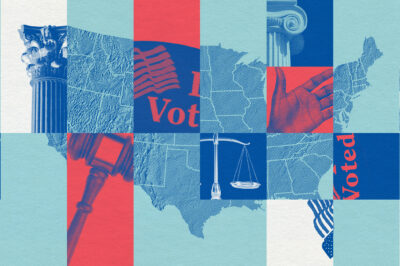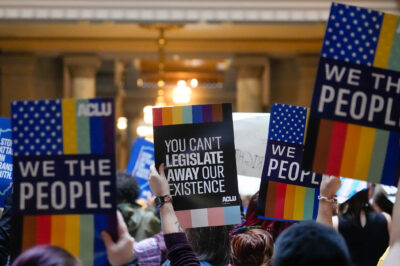
Which government agency refuses to release information on how the government uses new surveillance technology (even before legislative and judicial bodies have not yet considered the necessary privacy protections)?
Which social network’s internal search development could have repercussions for your privacy?
Which actress and activist joined the ACLU this week in calling for the Senate Intelligence Committee to release its CIA torture report?
Which company would prefer to reinforce the stereotype that women should be barefoot and pregnant instead of at work, rather than make accommodations for pregnant workers?
Which state proposed a bill that would limit the dangerous practice of solitary confinement of kids?
Justice Department Refuses to Release GPS Tracking Memos
Two key memos outlining the Justice Department’s views about when Americans can be surreptitiously tracked with GPS technology are being kept secret by the department despite a Freedom of Information Act lawsuit filed by the ACLU to force their release. The FBI’s general counsel discussed the existence of the two memos publicly last year, yet the Justice Department is refusing to release them without huge redactions. (You can see the heavily censored versions sent to the ACLU here and here, and our original FOIA request here.)
New Facebook Search Means It’s Time to Review Your Privacy Settings (Again)
This week’s media event was Facebook’s announcement of “Graph Search,” a new tool to find content and data on Facebook that could wind up making information about you far easier your friends or just about anyone else to find. Graph Search allows you to search Facebook for specific people, places, or content – for example, “friend of friends who live in New York and like sushi” or “restaurants liked by friends who also like Taco Bell” – using a brand-new interface. We explain what that means, and how you can follow Mark Zuckerberg’s suggestion to “take some time to review your stuff” so that your private information isn’t suddenly available to others.
Zero Dark Thirty, Secrecy, and Torture
Have you seen Zero Dark Thirty? The movie, about the hunt for Osama bin Laden, has received rave reviews – it’s an Oscar contender – and if you enjoy a thriller, you should see it.
We should watch Zero Dark Thirty as entertainment, but when we talk about torture, we should have the facts. It is wrong and frustrating that Americans can see torture depicted in fictionalized movies like Zero Dark Thirty, but are blocked from getting the real facts on the past CIA torture program. Actress Susan Sarandon calls on the Senate Intelligence Committee to release its 6,000-page factual report on CIA torture.
UPS Pushed Me Out of the Workplace When I Got Pregnant
Upon learning of her pregnancy, 10-year UPS employee Julie Desantis-Mayer requested a light duty position, available to employees under special circumstances, such as injury. Instead of reassigning Julie to an open secretarial position that she was already trained for, her manager fired Julie, stating that he didn’t want to set a precedent of making accommodations for pregnant workers. Julie writes about how she felt when making the decision to give up her salary and benefits in order to become a mother – an unfair and unnecessary choice that reinforces the stereotype that women should be barefoot and pregnant, instead of at work.
In California, an End to the Absolutely Devastating Practice of Locking Kids in Isolation in Juvenile Facilities May Be In Sight
Good news for kids in California who are locked in isolation in juvenile facilities: the state could effectively end the solitary confinement of youth in juvenile facilities this year. This desperately needed development comes care of Senator – and psychologist – Leland Yee of California, who introduced Senate Bill (SB) 61 last week. If passed, SB 61 would limit the use of solitary confinement of juveniles.
This is your week in civil liberties. Let us know if this is useful or if you’d like to see changes. Share your thoughts: ideas@aclu.org.
Learn more about your rights: Sign up for breaking news alerts, follow us on Twitter, and like us on Facebook.



